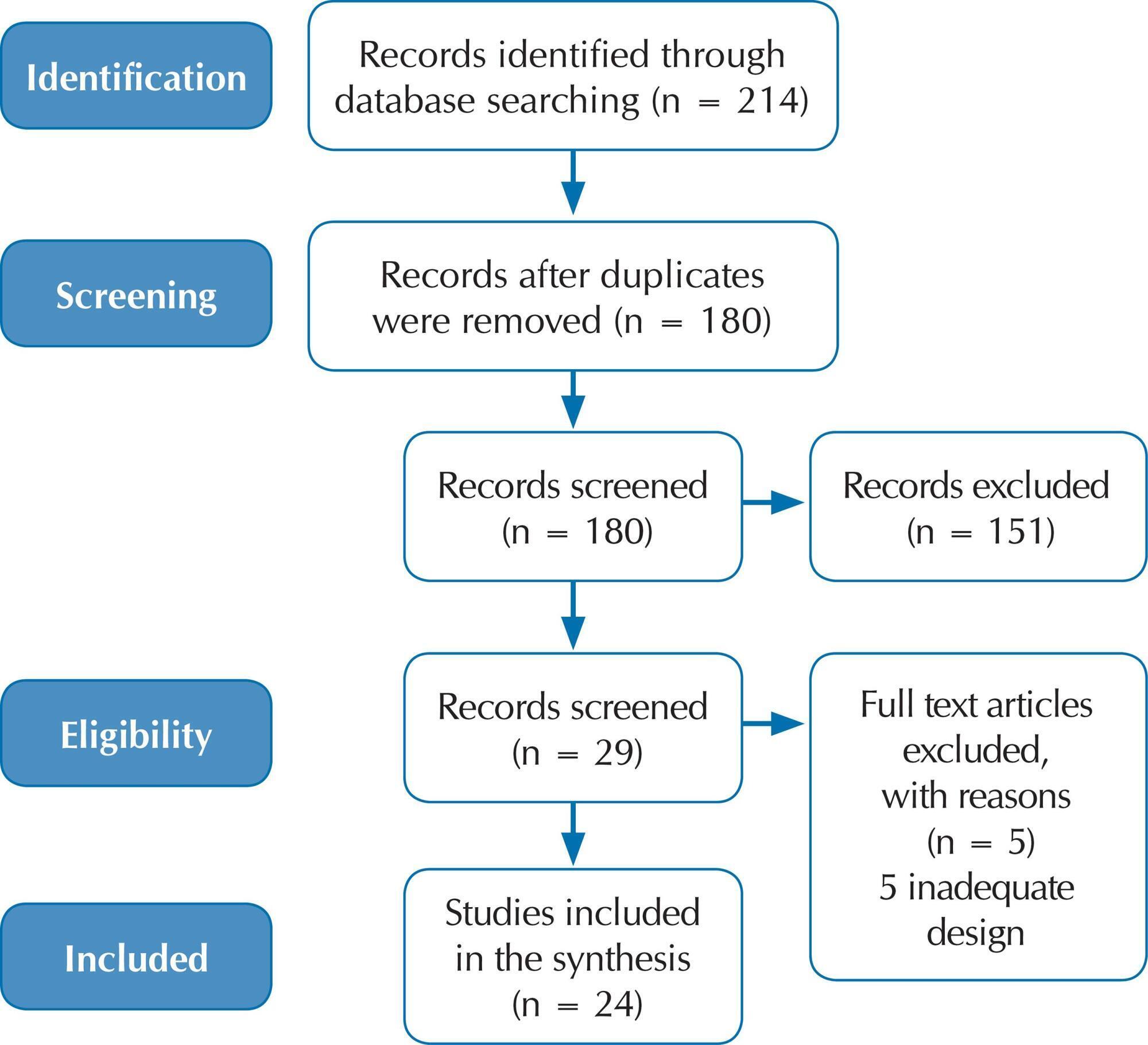-
ORIGINAL ARTICLE12-16-2024
Religion and professional experience: Are they predictors of nurses’ spiritual intelligence? Cross-sectional study
Revista Brasileira de Enfermagem. 2024;77(6):e20240217
Abstract
ORIGINAL ARTICLEReligion and professional experience: Are they predictors of nurses’ spiritual intelligence? Cross-sectional study
Revista Brasileira de Enfermagem. 2024;77(6):e20240217
DOI 10.1590/0034-7167-2024-0217
Views0See moreABSTRACT
Objectives:
to analyze the relationship between religion and professional experience with spiritual intelligence in nurses
Methods:
cross-sectional and analytical study carried out in 2021, with the participation of 544 nursing professionals working in health facilities in Peru during the COVID-19 pandemic. Multiple regression analysis and Pearson’s correlation were used to analyze the data.
Results:
in nurses, a healthy level of spiritual intelligence predominated (42.8%). Those who did not profess a religion were more likely to have a lower spiritual intelligence score (global scale and dimensions); however, experienced nurses were more likely to have higher spiritual intelligence (global scale and dimensions) than novice nurses (p<0.05).
Conclusions:
spiritual intelligence in nurses was predicted by religion and professional experience. This finding suggests that spiritual intelligence in nursing is consolidated through religious practices and during professional practice.
-
EXPERIENCE REPORT11-27-2023
Implementation of a nursing strategy for self-transcendence in older adults: an experience report
Revista Brasileira de Enfermagem. 2023;76(5):e20220745
Abstract
EXPERIENCE REPORTImplementation of a nursing strategy for self-transcendence in older adults: an experience report
Revista Brasileira de Enfermagem. 2023;76(5):e20220745
DOI 10.1590/0034-7167-2022-0745
Views0See moreABSTRACT
Objectives:
to report the experience of implementing a nursing strategy to promote self-transcendence in older adults attended at a Primary Health Care center.
Methods:
an experience report on the implementation of a strategy addressing the Theory of Self-Transcendence by nursing to older adults in a primary health unit, in San Luis Potosí, Mexico, from October to November 2022.
Results:
fourteen older adults and three nurses participated. From the expression of feelings, speeches about self-transcendence, spirituality and physical activity promotion, the strategy was satisfactory. Emotional, cognitive and spiritual changes were observed in the different dimensions of the Theory of Self-Transcendence.
Final Considerations:
the nursing strategy on self-transcendence made it possible to identify significant moments that helped to identify the key points in which older adults were; it helped to intervene from a person-to-person care perspective.
-
ORIGINAL ARTICLE12-05-2019
Spirituality and religiosity for the transcendence of the elderly being
Revista Brasileira de Enfermagem. 2019;72:259-265
Abstract
ORIGINAL ARTICLESpirituality and religiosity for the transcendence of the elderly being
Revista Brasileira de Enfermagem. 2019;72:259-265
DOI 10.1590/0034-7167-2018-0840
Views0See moreABSTRACT
Objective:
to understand the life experiences that favor transcendence of the elderly being.
Method:
a qualitative phenomenological hermeneutic study, in two groups of elderly coexistence. The selection of participants was by intentional sampling: 11 elderly, achieving theoretical saturation. Data collection was carried out through a phenomenological interview with a detonating question. Ethical principles of the General Health Law in health research were fulfilled. Analysis with Heideggerian hermeneutic circle was performed.
Results:
unity of meaning on the consciousness of a higher power for transcendence is highlighted, where spirituality and religiosity are resources of the elderly for strength, feel protected, overcome difficult situations and reach fullness; both favor the understanding of their historicity by manifesting enlightenment.
Final considerations:
transcendence of the elderly being is favored with spirituality and the experiences of their daily life are imbued with a spiritual and religious relationship that give meaning to their existence.
-
REVIEW01-01-2018
Spirituality review on mental health and psychiatric nursing
Revista Brasileira de Enfermagem. 2018;71:2323-2333
Abstract
REVIEWSpirituality review on mental health and psychiatric nursing
Revista Brasileira de Enfermagem. 2018;71:2323-2333
DOI 10.1590/0034-7167-2016-0429
Views0See moreABSTRACT
Objective:
Gather the concepts, theories and interventions about spirituality, its nature and functions in mental health and psychiatric nursing.
Method:
A literature review proceeded on February 2016. It has integrated 214 studies published until December 2015 by crossing Spirituality and Psychiatric Nursing mesh terms in databases.
Results:
Conceptualization about spirituality and religion, their complexity in nursing research, education, and clinical approach; their functions to human being correlated to the purpose of life, transcendental connections, and support in mental health; the professional boundaries in address to spirituality in mental health scenery, and a descriptive literature recommendations and a instruments catalog.
Conclusions:
Spirituality in nursing mental health and psychiatry remains a theoretical problem, and has a clinical mischaracterized approach; recently publications try to promote a human and holistic trend in the practice, as a challenge to lead the current circumstances to valid nursing bases.

-
REVIEW01-01-2016
The Spiritism as therapy in the health care in the epilepsy
Revista Brasileira de Enfermagem. 2016;69(4):804-810
Abstract
REVIEWThe Spiritism as therapy in the health care in the epilepsy
Revista Brasileira de Enfermagem. 2016;69(4):804-810
DOI 10.1590/0034-7167.2016690425i
Views0See moreABSTRACT
Objective:
to present a brief history of Spiritism, the vision of epilepsy by Spiritism, and the potential of spirituality and religiosity care as complementary and coadjutants treatments in epilepsy.
Method:
this is a brief review about the impact of faith, spirituality, and religiosity, particularly the Spiritism philosophy as complementary treatment to neurological disorders (particularly focusing on epilepsy) and mental health. We conduct a review of published articles (about religion/spirituality and epilepsy) in the Pubmed and SciELO databases.
Conclusion:
the exercise of spirituality and religiosity can be a positive coping strategy to support the traditional therapy of patients with epilepsy and other neurological disorders. However, it is necessary to demystify myths and beliefs about the epilepsy and improve knowledge about this important health dimension among professionals, patients, and caregivers to explore their full treatment and supportive potential.



